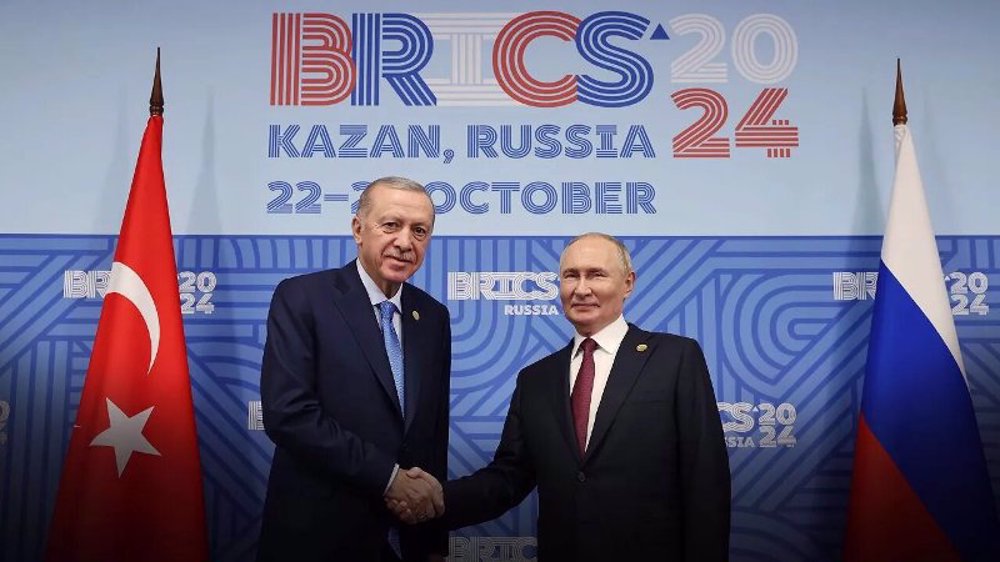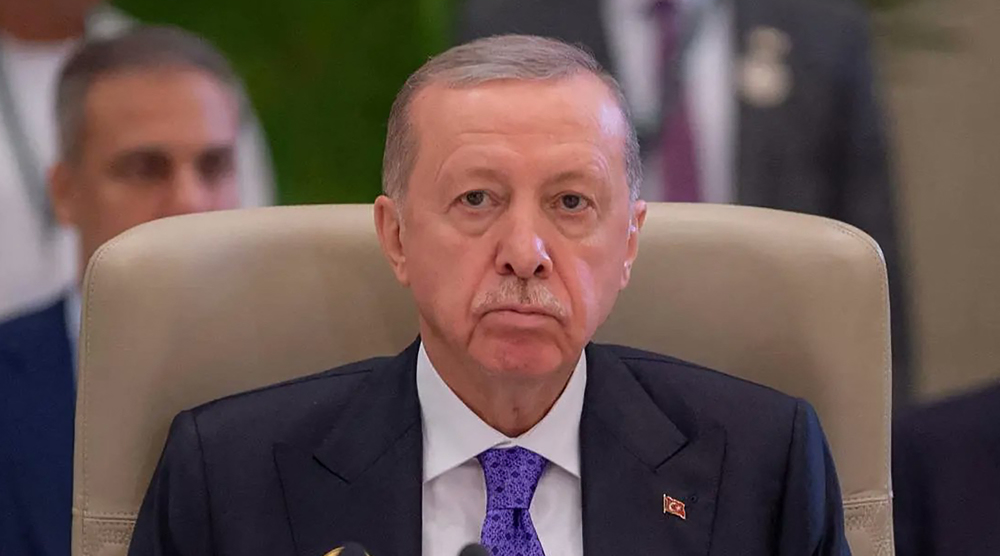Erdogan sends first letter to Putin since Su-24 downing
Turkish President Recep Tayyip Erdogan has sent a congratulatory letter to his Russian counterpart Vladimir Putin on the occasion of Russia’s National Day in the first such contact since bilateral relations hit a low after Ankara downed a Russian fighter jet in November last year.
"Dear Mr. President. On behalf of the Turkish people, I celebrate the National Day of the Russian people. I also hope that relations between Russia and Turkey reach the level they deserve in the near future,” Erdogan told Putin in the letter to the Russian president, Turkey’s Hurriyet Daily News reported.
Russia’s Sputnik news agency quoted Kremlin spokesman Dmitry Peskov as saying on Monday that “the letter came through the Foreign Ministry channels.”
Earlier in the day, an unnamed Turkish official confirmed that Erdogan had sent the letter to the Russian leader marking the country’s national day on June 12.
The Turkish official described the letter as "a token of Turkey’s goodwill", and expressed hope that Moscow would demonstrate “a responsible and constructive” reaction.
He added that a similar letter was also sent by Prime Minister Binali Yildirim to his Russian counterpart Dmitry Medvedev on June 12.
“I hope that the cooperation and relations between our countries reach the level necessary for the common goals of our people soon. I wish health and prosperity to all Russians on behalf of you,” Yildirim was quoted as saying by the Turkish daily.

Erdogan’s post-November 24 letters, such as the one offering condolences over a fatal Flydubai plane crash in Rostov-on-Don in March, had only addressed the Russian nationals in general and not Putin, according to Russian media.
Tensions between Moscow and Ankara sharply escalated on November 24, 2015, when Turkey shot down a Russian Su-24 fighter jet over Syria, claiming that it had entered Turkish airspace, an accusation strongly rejected by Moscow.
Of the two pilots aboard the warplane, one was rescued with the help of the Syrian army, but the other was killed by militants fighting the Syrian government.
Following the incident, Russia suspended all military deals with Turkey and imposed a number of economic sanctions on the country.
Earlier this month, Moscow said Turkey should apologize and compensate for downing the Russian aircraft if it wants to mend bilateral ties, adding that Ankara has taken “no steps” yet toward redressing its “aggressive and treacherous acts.”
Peskov said the Russian side “expects apology, explanations of reasons of the incident and payment of compensation for the downed jet and also compensation to the family of the killed pilot.”

‘Rupture point’
In comments carried by Hurriyet, the Turkish president said although the shooting down of the Russian plane in November had brought bilateral relations to a "rupture point", he hoped ties would restore “in a short time”.
"With Putin, we brought bilateral ties to a very advanced level. Our trade volume with Russia was much more than that with America... It is saddening to see such strong ties reach the current state," he said on June 11, adding, “I hope our relations will recover in a short time and we'll get back to our old days again with new vigor."
Surveillance flights
Meanwhile, the Russian Defense Ministry has allowed Turkish and Finnish experts to perform unarmed surveillance flights over the Russian territory.
According to Turkey’s Daily Sabah, Russia’s Defense Ministry announced on Monday that the flights can be performed between June 13 and 17 in accordance with the Open Skies Treaty.

Under the 2002 treaty, Turkey, Russia and 32 other signatories are obliged to allow unarmed aerial surveillance flights over the entire territory of the treaty’s participants. Such flights are meant to gather information about military forces and activities of concern to the member states aimed at boosting mutual understanding and confidence.
The permit, seen as a possible sign of rapprochement, was granted only four months after Sergey Ryzhkov, the chairman of the Russian Defense Ministry’s National Nuclear Risk Reduction Center, said Turkey had breached the treaty by refusing to allow a Russian surveillance plane to overfly its territory near Syria without any prior warning.
“We are not going to leave without proper attention and relevant reaction violations of the Open Skies Treaty on the part of the Turkish Republic,” the Russian official warned at the time.
VIDEO | Press TV's news headlines
VIDEO | US-Israeli genocide: Will Gazans see ceasefire deal achieved?
VIDEO | Grief strikes Parachinar: 44 lives lost in terror attack
VIDEO | Yemen’s armed forces target Israeli airbase amid nationwide pro-Palestinian rallies
Putin vows more test of new hypersonic missile
VIDEO | Jordanians continue rallies to denounce Israeli genocide in Gaza, Lebanon
6 Israeli soldiers commit suicide: Reports
Diplomat discourages recourse to pressure, intimidation, confrontation against Iran










 This makes it easy to access the Press TV website
This makes it easy to access the Press TV website